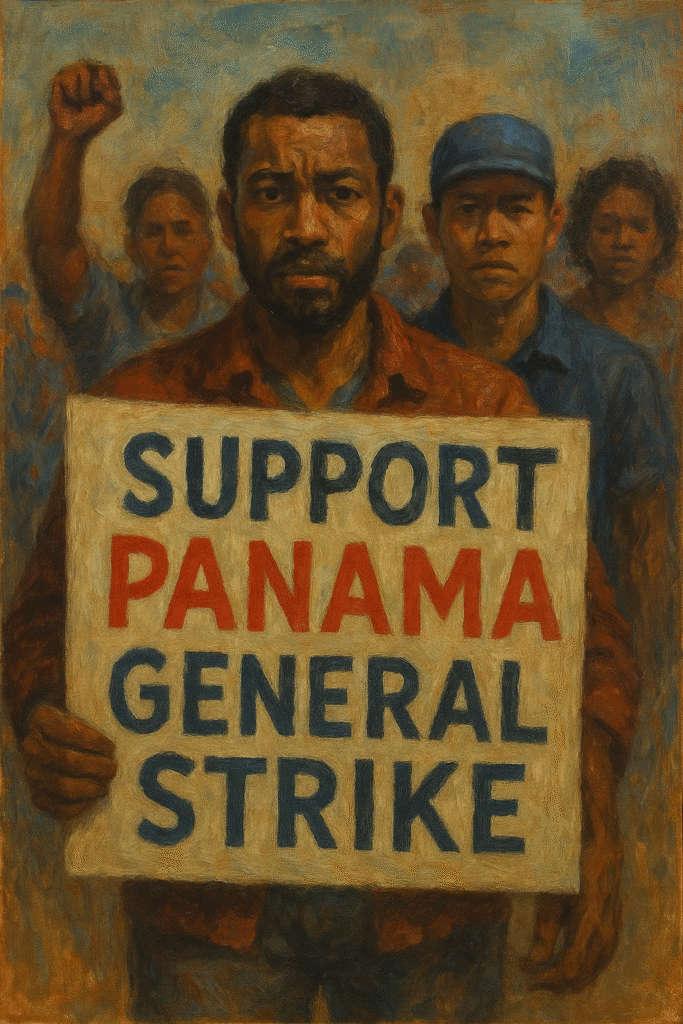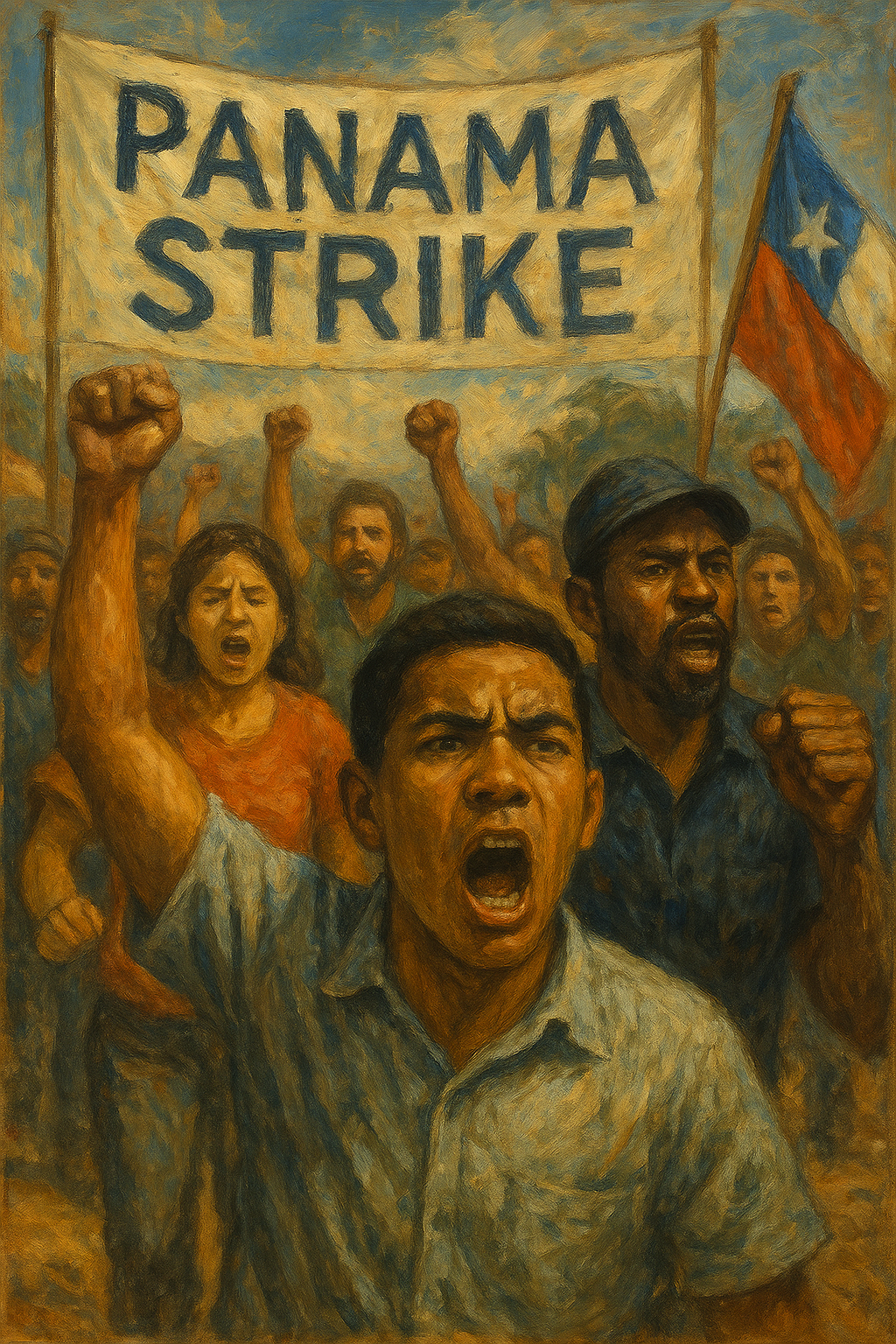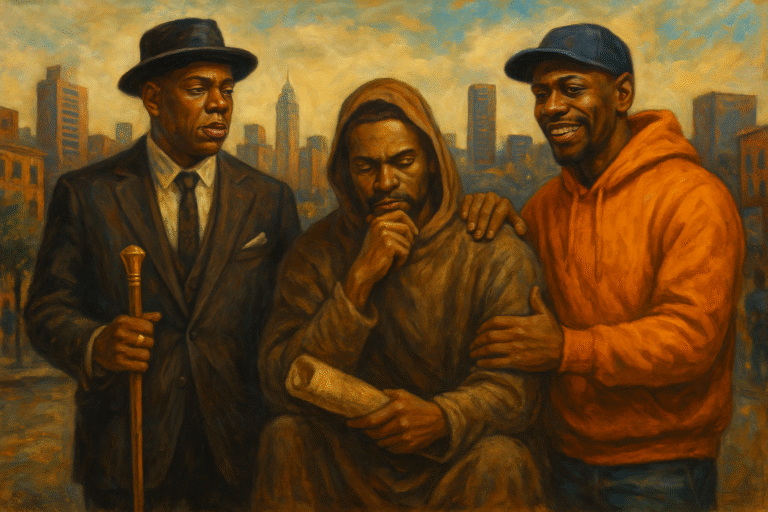By JustINSPIRE Mentoring
Across Panama, the people have taken to the streets. Not for sport, not for spectacle—but for survival, sovereignty, and the dignity of their labor. For over two months, Panama has been in the grip of a militant general strike. It’s not just a protest—it’s a collective uprising against American mining corporations, banana plantation exploitation, and decades of neoliberal economic control that has disproportionately impacted indigenous and Afro-Caribbean laborers.
📢 What’s Happening on the Ground
This general strike, led by banana workers, teachers, and construction laborers—many of whom are indigenous or descendants of Jamaican migrants—is one of Panama’s largest grassroots labor actions in recent history.
The epicenter of the strike, Bocas del Toro, erupted in demonstrations, roadblocks, and mass mobilization. The result? Panama’s government suspended constitutional rights like freedom of assembly and movement and deployed national police across strike zones.
Meanwhile, 5,000 workers were fired by banana giant Chiquita, citing illegal protest activity. The company reported over $75 million in losses, revealing just how dependent these global corporations are on exploited Panamanian labor.
💥 The Spark That Lit the Flame
This isn’t just about wages. It’s about survival.
Panama’s government, under pressure from international trade pacts and American interests, rolled out neoliberal reforms affecting social security and mining rights. Workers—many still suffering the effects of past U.S. imperialism and corporate land grabs—are now being asked to give even more. But this time, they’ve said no.
🧾 Breakdown of Union Demands
The coalition of workers and unions have laid out clear and coordinated demands. These include:
1. Reinstatement of Fired Workers
- Full reinstatement of all 5,000 Chiquita workers without retaliation.
- A guarantee of labor protections for protest participants.
2. Protective Labor Laws
- Legal safeguards against mass firings during peaceful demonstrations.
- Recognition of union rights and increased union bargaining power.
3. Environmental Justice
- A complete halt to new foreign-owned mining operations.
- Restoration of lands polluted by mining and banana pesticide runoff.
4. Public Infrastructure Investment
- Immediate improvements in public schools, roads, and rural healthcare.
- Accountability for funds misallocated by corrupt officials and private contractors.
5. Respect for Indigenous Autonomy
- Legal recognition of autonomous indigenous territories and ancestral land claims.
- Prohibition of corporate development without tribal consultation and consent.
🌍 Why It Matters
This rebellion isn’t just about Panama—it’s about everywhere people are rising against exploitative systems. Here in the U.S., we should be paying attention. Every time we support brands like Chiquita, or accept that prisons and wars get funded while community schools beg for scraps—we’re participating in a similar pattern.
You may feel helpless at times. I do too.

I think about how I struggle to raise $10,000 to build a mentoring business that helps boys become men, and yet—$450 million can appear instantly for Florida to build a detention center in the Everglades surrounded by alligators and pythons. That’s real. That’s happening. Right now.
So ask yourself: Where does your support go?
🧠 For the JustINSPIRE Community
Let this be a reminder: Don’t become numb. Don’t forget your power. What you support, what you fund, what you speak on—it all shapes the world. If you’re silent, you’re complicit.
And if you’re struggling, just know this: you’re not alone.
There are people in Panama, Baltimore, Palestine, the Bronx, and beyond—all fighting for breath. This is your signal: breathe deeper, stand up, and lift others as you rise.
✊ Support the Movement
- Learn more about the movement in Panama.
- Support grassroots labor unions.
- Share this post with someone who still thinks sweatshops and cheap bananas don’t hurt anybody.
- Subscribe to JustINSPIRE for more content that challenges systems and uplifts the people.







